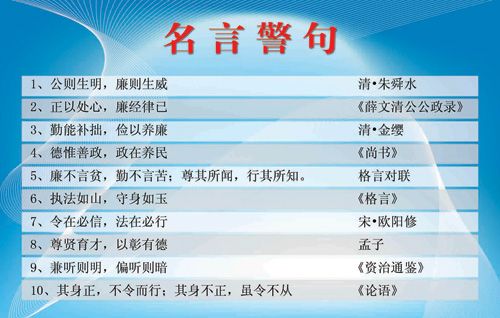
.
.
清明节的习俗英文
[篇一:清明节英文介绍]
清明节英文介绍
awell-knownpoembytangdynastywriterdumutellsofasad
sceneinearlyapril:rainsfallheavilyasqingmingcomes,and
ngday,the
traditionaltomb-sweepingday,
visittheirancestorsgravestosweepawaythedirt.
唐朝著名诗人杜牧有一首著名的诗,描述了四月初令人伤感的一幕
场景:“清明时节雨纷纷,路上行人欲断魂。〞每年4月4-6日左右
的清明节是传统的扫墓的日子。在这一天,人们祭吊去世的亲人,
到先人的坟头上扫墓。
princechongerranawayfromthecountrywithhissupporters
dueto
rehomelessfor19yearsandthingsgot
he
princesfaithfulfollowers,jiezitui,cutapieceofmusclefrom
hisownlegandrvedittohis
rwassavedand,in636bc,hetookbackthe
throne.清明节可以追溯到春秋时代。晋国公子重耳因受到迫害,率
其支持者出逃。19年间,他们居无定所,漂泊四方。一次,他们的
处境相当窘迫,重耳饿得快不行了。这时,忠心耿耿的介子推从自
己的腿上割下一块肉献给了重耳,公子重耳得救了。公元前636年,
他夺回了王位。
.
.
herewardedtheofficialswhohadstayedloyaltohimbuthe
imechongerrememberedhim,a
heartbrokenjiezituihadtraveleddeepintothemountains.
chongerwantedtopersuadejietocomehome,sohehadthe
waslaterfoundbesidealargetree,with
redead.即位之后,重耳对
支持者大加封赏,却忘记了介子退。等到想起这位忠臣时,伤心的
介子推早已遁入山林深处。重耳想逼他回来,所以就大火焚山。后
来,在一棵大树旁边发现了背着老母的介子推。两人都被烧死了。
saddenedbythetragedy,chongerorderedthatfirescould
iscomeshanshi
day,visitedjiezituistombthenext
me,hanshidaywasreplaced
withtomb-sweepingday.重耳悲痛欲绝。他下令,在介子推的忌
日不准生火。寒食节即来源于此。寒食节的次日,人们到介子推的
坟头上致敬。随着时间的推移,寒食
tomb-sweepingday清明节英文介绍
tomb-sweepingday是最常用的
purebrightfestival清明节另外的说法:
qingmingfestival(清明节英语介绍)
theqingming(purebrightness)festivalisoneofthe24
asonaldivisionpointsinchina,fallingonapril4-6eachyear.
afterthefestival,thetemperaturewillriupandrainfall
ehightimeforspringplowingandsowing.
buttheqingmingfestivalisnotonlyaasonalpointtoguide
farmwork,itismoreafestivalof
commemoration.
theqingmingfestivalesacombinationofsadnessand
happiness.
.
.
ehanand
minorityethnicgroupsatthistimeoffersacrificestotheir
,theywill
notcookonthisdayandonlycoldfoodisrved.
thehanshi(coldfood)festivalwasusuallyonedaybeforethe
ncestorsoftenextendedthedayto
theqingming,theywerelatercombined.
oneachqingmingfestival,allcemeteriesarecrowdedwith
c
lightly
sweepingthetombs,peopleofferfood,flowersandfavorites
ofthedead,thenburnincenandpapermoneyandbow
beforethememorialtablet.
incontrasttothesadnessofthetombsweepers,peoplealso
gmingfestivalisa
timewhenthesunshinesbrightly,thetreesandgrassbecome
ncienttimes,people
time
touristsareeverywhere.
ying
queness
liesinthatpeopleflykitesnotduringtheday,butalsoatnight.
astringoflittlelanternstiedontothekiteorthethreadlook
likeshiningstars,andtherefore,arecalledgodslanterns.
theqingmingfestivalisalsoatimetoplanttrees,forthe
past,the
ce1979,arbor
daywasttledasmarch12accordingtothegregorian
calendar.
.
.
清明节
清明是我国的二十四节气之一。由于二十四节气比较客观地反映了
一年四季气温、降雨、物候等方面的变化,所以古代劳动人民用它
安排农事活动。但是,清明作为节日,与纯粹的节气又有所不同。
节气是我国物候变化、时令顺序的标志,而节日则包含着一定的风
俗活动和某种纪念意义。因此,这个节日中既有祭扫新坟生别死离
的悲酸泪,又有踏青游玩的欢笑声,是一个富有特色的节日。
清明节是我国传统节日,也是最重要的祭祀节日,是祭祖和扫墓的
日子。扫墓俗称上坟,祭祀死者的一种活动。汉族和一些少数民族
大多都是在清明节扫墓。由于清明与寒食的日子接近,而寒食是民
间禁火扫墓的日子,渐渐的,寒食与清明就合二为一了,而寒食既
成为清明的别称,也变成为清明时节的一个习俗,清明之日不动烟
火,只吃凉的食品。
按照旧的习俗,扫墓时,人们要携带酒食果品、纸钱等物品到墓地,
将食物供祭在亲人墓前,再将纸钱焚化,为坟墓培上新土,折几枝
嫩绿的新枝插在坟上,然后叩头行礼祭拜,最后吃掉酒食回家。
与清明节扫墓的悲哀相反,人们在这个春光明媚的日子里,也一样
是可以享受生活的。
放风筝也是清明时节人们所喜爱的活动。每逢清明时节,人们不仅
白天放,夜间也放。夜里在风筝下或风稳拉线上挂上一串串彩色的
小灯笼,象闪烁的明星,被称为“神灯〞。
清明前后,春阳照临,春阳照临,春雨飞洒,种植树苗成活率高,
成长快。因此,自古以来,我国就有清明植树的习惯。有人还把清
明节叫作“植树节〞。植树风俗一直流传至今。1979年,人大常委会
规定,每年三月十二日为我国植树节。这对动员全国各族人民积极
开展绿化祖国活动,有着十分重要的意
义。
.
.
清明既是二十四节气之一,又是中华名族传统的祭祖日,现如今也
是春光踏青的“小长假〞。
清明一到,春回大地,精神气爽,一年的劳作从此开始。
清明这天,祭拜祖先,缅怀故人,放飞思念,心存感恩。
清明小假,踏青插柳,出游赏花,陶冶身心,积蓄能量。
[篇二:英文说传统清明]
清明节与其起源英文介绍
qingmingfestivalanditsorigin
qingming,whichmeansclearandbrightinchine,fallson
ththefifthterminthetraditional
lunarcalendarandafestivaltoholdmemorialceremonyfor
imetoexpressonesgriefforhislostrelatives.
anancientelegiacpoem,whichdescribedagrievouswoman,
wasreadthatvinestangledinvainandweedscreptinthe
graveyard,o
difficulttoendureforherasifsummerinthedayandwinterat
onlywishwastoreunitewithhimafterdeath.
peopleoftengotosweepandweedgraveswithwholefamily
dynasty,the
time,lof
growinglifeisintheair,withsapascendingintreesandbuds
willowbranchesinrtedoneachgateadd
ctuallymeans
stomcanbetracedbacktooverone
thousandyearsago.
duringtheperiodofspringandautumninthejinkingdom,
sofhistalent,
.
.
aconcubinefallyaccudhimofrebelliontomakeherson
ochoicebuttofleeandwithhim
dthemlvesinamountainand
cialnamedjiezitui
tookgreatpaintocutsomefleshfromhisthighandcookedit
efactwasknowntheyoungmasterwas
repliedhis
vedalifeof
hungerandcoldforthreeyearsuntiltheevilconcubinedied.
manysoldierswerenttolookforhimandtoescorthimback
ntothecarriage,hesawanofficialpackedanold
matontoahor,hesaidlaughingly,whatonearthistheu
ofthat?throwitaway!jiezituihearditandsighed,itis
hardshipthatcanbesharedwithhismajestybutnot
ntawayquietlyandlivedinclusionwith
hisoldmother.
aschongerbecameking,herewardedmanypeoplebuthe
otrealizeituntilwasreminded.
rs
wereorderedtoburnupthemountaintoforcejietocomeout.
finallytheyfoundjieandhismotherscorchedunderawillow.
rwasso
overwhelmedwithregretthatheorderedpeopleholdmemorial
yyearonthatdayfolksmournedfor
himandthedaybeforeatecoldmeals,whichavoidedmaking
hecustomofinrtingwillowbranchesongates
wasalsoadded.
清明节的由来
清明节〔tomb-sweepingday〕qingmingjie〔allsoulsday〕
qingmingisatimetorememberthedeadandthedearly
portant,itisaperiodtohonourandtopay
respecttoonesdeceadancestorsandfamilymembers.
.
.
becauitreinforcestheethicoffilialpiety,qingmingisa
majorchinefestival.
清明节是一个纪念祖先的节日。主要的纪念仪式是扫墓,扫墓是慎
终追远、郭亲睦邻与行孝的具体表现;基于上述意义,清明节因此
成为华人的重要节日。
literallymeaningclear(qing)andbright(ming),thischine
festivalfallsinearlyspring,onthe106thdayafterthewinter
pringfestival,anditisanoccasionforthe
wholefamilytoleavethehomeandtosweepthegravesof
ebeingpracticalpeoplethissweeping
ofthegravesisgivenanextendedperiod,thatis,10days
omedialectgroupsa
wholemonthisallocated.
清明节是在仲春和暮春之交,也就是冬至后的106天。扫墓活动通
常是在清明节的前十天或后十天。有些地域的人士的扫墓活动长达
一个月。
origin〔起源〕
qingmingispopularlyassociatedwithjiezizhui,wholivedin
shanxiprovincein600
hasitthatjiesavedhisstarvinglordslifeby
elordsucceededin
becomingtherulerofasmallprincipality,heinvitedhisfaithful
r,jiedeclinedhisinvitation,
preferringtoleadahermitslifewithhismotherinthe
mountains.
谈到清明节,有点历史知识的人,都会联想到历史人物介子椎。据
历史记载,在两千多年以前的春秋时代,晋国公子重耳逃亡在外,
生活艰苦,跟随他的介子椎不惜从自己的腿上割下一块肉让他充饥。
后来,重耳回到晋国,作了国君〔即晋文公,春秋五霸之一〕,大
.
.
事封赏所有跟随他流亡在外的随从,惟独介子椎拒绝接受封赏,他
带了母亲隐居绵山。
believingthathecouldforcejieoutbyburningthemountain,
consternation,jiechotoremainwherehewasandwasburnt
emoratejie,thelordorderedallfiresinevery
beganthecoldfoodfeast,adaywhennofoodcouldbe
cookedsincenofirecouldbelit.
晋文公无计可施,只好放火烧山,他想,介子椎孝顺母亲,一定会
带着老母出来。谁知这场大火却把介子椎母子烧死了。为了纪念介
子椎,晋文公下令每年的这一天,禁止生火,家家户户只能吃生冷
的食物,这就是寒食节的来源。
thecoldfoodfestivaloccursontheeveofqingmingandis
pass,theqingmingfestivalreplacedthecoldfoodfestival.
whateverpracticeisobrved,thebasicobrvationofqing
mingistorememberoneldersbymakingaspecialeffortto
visittheirgraves,thevisit
evenmoremeaningful,sometimeshouldbespenttoremind
theyoungermembersofthefamilyofthelivesand
contributionsoftheirancestors,andthestoryofjiezizhui
whochoodeathovercapitulation.
寒食节是在清明节的前一天,古人常把寒食节的活动延续到清明,
久而久之,清明取代了寒食节。拜介子椎的习俗也变成了清明扫墓
的习俗了。无论以何种形式纪念,为了使纪念祖先的仪式更有意义,
我们应该让年轻一代的家庭成员了解先人过去的奋斗历史,当然,
还要学习介子椎宁死不屈的气节
2012各地清明节风俗习惯和来历〔双语〕
.
.
清明节的习俗是丰富有趣的,除了讲究禁火、扫墓,还有踏青、荡
秋千、蹴鞠、打马球、插柳等一系列风俗体育活动。相传这是因为
清明节要寒食禁火,为了防止寒食冷餐伤身,所以大家来参加一些
体育活动,以锻炼身体。因此,这个节日中既有祭扫新坟生别死离
的悲酸泪,又有踏青游玩的欢笑声,是一个富有特色的节日。
thecustomoftheqingmingfestivalisrichinteresting,in
additiontopayattentiontothefire,thegrave,andouting,
swing,agamecalledcuju,playpolo,inrtedliuandsoona
becautomb-
sweepingdaytopeoplefromthefire,inordertopreventacold
buffetinjurybody,soeveryonetotakepartinsomeofthe
sportsactivities,ore,thisfestivalboth
jisaonewbornfromthegravedontdeadbeisuantears,and
visitoutinglaughter,isarichcharacteristicholiday.
但是,清明作为节日,与纯粹的节气又有所不同。节气是我国物候
变化、时令顺序的标志,而节日则包含着一定的风俗活动和某种纪
念意义。
but,asaclearfestival,
termisourcountryphenology,asonalchangeoftheorder
ofsymbol,andthefestivaliscontainscertaincustomof
commemoration.
清明节是我国传统节日,也是最重要的祭祀节日,是祭祖和扫墓的
日子。扫墓俗称上坟,祭祀死者的一种活动。汉族和一些少数民族
大多都是在清明节扫墓。
按照旧的习俗,扫墓时,人们要携带酒食果品、纸钱等物品到墓地,
将食物供祭在亲人墓前,再将纸钱焚化,为坟墓培上新土,折几枝
嫩绿的新枝插在坟上,然后叩头行礼祭拜,最后吃掉酒食回家。唐
代诗人杜牧的诗《清明》:“清明时节雨纷纷,路上行人欲断魂。借
问酒家何处有?牧童遥指杏花村。〞写出了清明节的特殊气氛。
.
.
accordingtotheoldtradition,thegrave,peopletocarry
goodssuchaspeciallyfruit,papermoneytothecemetery,
willbefoodforofferinginthetomboflovedones,thenthe
deadincineration,graveearthedupnewsoil,foldafew
branchesofthe60-footgreeninrtedinagrave,andthen
koutouworshipsalute,tsin
tangdynastydumupoempainting:rainin
succession,pedestrianrainsfallheavilyasqingmingcomes
tambitiousalmond
flowers?hetomb-sweepingdayspecial
atmosphere.
荡秋千
swing
这是我国古代清明节习俗。秋千,意即揪着皮绳而迁移。它的历史
很古老,最早叫千秋,后为了避忌讳,改为秋千。古时的秋千多用
树桠枝为架,再栓上彩带做成。后来逐步发展为用两根绳索加上踏
板的秋千。打秋千不仅可以增进健康,而且可以培养勇敢精神,至
今为人们特别是儿童所喜爱。
,
toryisvery
old,andthefirstcallcentury,inordertoavoidaftertaboo,to
ftheoldtreeyazhimulti-purpoforframe,
aduallydevelopedfor
tonlyimprovesthe
healthswing,andcancultivatethebravespirit,tonowis
people,especiallychildrensfavorite.蹴鞠
gamecalledcuju
鞠是一种皮球,球皮用皮革做成,球内用毛塞紧。蹴鞠,就是用足
去踢球。这是古代清明节时人们喜爱的一种游戏。相传是黄帝发明
的,最初目的是用来训练武士。
.
.
aballisbowed,ballwithleatherskinmade,theballinside
calledcuju,
has
itthattheinventionoftheyellowemperor,originalpurpois
udtotrainwarrior.
踏青
outing
又叫春游。古时叫探春、寻春等。三月清明,春回大地,自然界到
处呈现一派生机勃勃的景象,正是郊游的大好时光。我国民间长期
保持着清明踏青的习惯。
dtanchun,xunchun,
march,springwarmstheearth,naturebecomeavibrant
pictureeverywhere,
countryfolktokeepforalongtimethehabitofclearouting.
植树
plantingtrees
清明前后,春阳照临,春阳照临,春雨飞洒,种植树苗成活率高,
成长快。因此,自古以来,我国就有清明植树的习惯。有人还把清
明节叫作“植树节〞。植树风俗一直流传至今。1979年,人大常委会
规定,每年三月十二日为我国植树节。这对动员全国各族人民积极
开展绿化祖国活动,有着十分重要的意义。
clarityaround,chunyangzhaolin,chunyangzhaolin,spring
rainfeisa,plantingtreessurvivalratehigh,ore,
sincetheancienttimes,ourcountryisclearthehabitof
resomecalledtheqingmingfestival
ngtreescustomshasbeenspreaduntilnow.
in1979,thenationalpeoplescongressstandingcommittee
regulations,
.
.
mobilizationofthepeopleofallethnicgroupsinmotherland
greenactivelycarryoutactivities,hastheextremelyvital
significance.放风筝
flyakite
也是清明时节人们所喜爱的活动。每逢清明时节,人们不仅白天放,
夜间也放。夜里在风筝下或风稳拉线上挂上一串串彩色的小灯笼,
象闪烁的明星,被称为“神灯〞。过去,有的人把风筝放上蓝天后,
便剪断牵线,任凭清风把它们送往天涯海角,据说这样能除病消灾,
给自己带来好运。
qingmingday,peoplenotonlybaitianfang,alsoputonatnight.
thenightwindorstabilityinkitehungastringofarrowscolor
smalllanterns,liketheshiningstars,calledtheabsolutebeing
ast,somepeopleputakitethebluesky,thencut
matchmaking,letthewindputthemnttotheendsofthe
world,itissaidthatthiscanexceptdiadisaster,bringyou
goodluck.
[篇三:清明节的英文说法]
“清明节〞的英文说法,清明节用英语怎么说,清明节的英语翻译。
清明节是我国重要的传统节日。从二十四节气上讲,它又是节气之
一。它是唯一一个节日和节气并存的日子,可见古人对这一天的重
视程度。
清明的具体日期在仲春和暮春之交,大约农历4月4、5、6日之间。
此时,天气转暖,大地回春,万物复苏,一片生机盎然,家家门口
插柳条,祭扫坟墓和郊外踏青。农谚中也有清明忙种粟的说法。
作为中国人,对于这些从小看大的习俗我们当然不会陌生,可如果
问你“清明〞用英语怎么讲、你就未必知道了吧!
.
.
首先我们要清楚的是:作为节日的清明节、和作为节气的清明,它
们的英文说法是不同的。
作为节日的清明节一般翻译为tombsweepingfestival或者tomb-
sweepingday,扫墓节或扫墓日。这个翻译着重强调了清明节的重
要习俗“扫墓〞。这种说法的好处是,老外一听就能大概明白这个节
日的背后含义。
也有人把清明节翻译为allsoulsday,这是一种站在对方文化角度
考虑做出的翻译。因为allsoulsday在西方是确实存在的节日,一
般称为“万灵日〞。这是一个XX节日,在有的教派里甚至不止一天。
教会会在这一天为那些去世后无法进入天堂的信徒祈祷,希望他们
早日进入天堂。其基本意义和清明节相似,也是祭奠死者的节日。
另外再谈到作为节气的清明,它被译为clearandbright,清洁和
明亮。我们也不难发现,这种译法强调的是清明时节的气候状况,
和其他节气的翻译出发点一致。比如立夏被译为summerbegins、
小寒、大寒分别被译为slightcold和greatcold。
本文发布于:2023-03-04 10:24:13,感谢您对本站的认可!
本文链接:https://www.wtabcd.cn/zhishi/a/1677896654122836.html
版权声明:本站内容均来自互联网,仅供演示用,请勿用于商业和其他非法用途。如果侵犯了您的权益请与我们联系,我们将在24小时内删除。
本文word下载地址:踏青英文.doc
本文 PDF 下载地址:踏青英文.pdf
| 留言与评论(共有 0 条评论) |